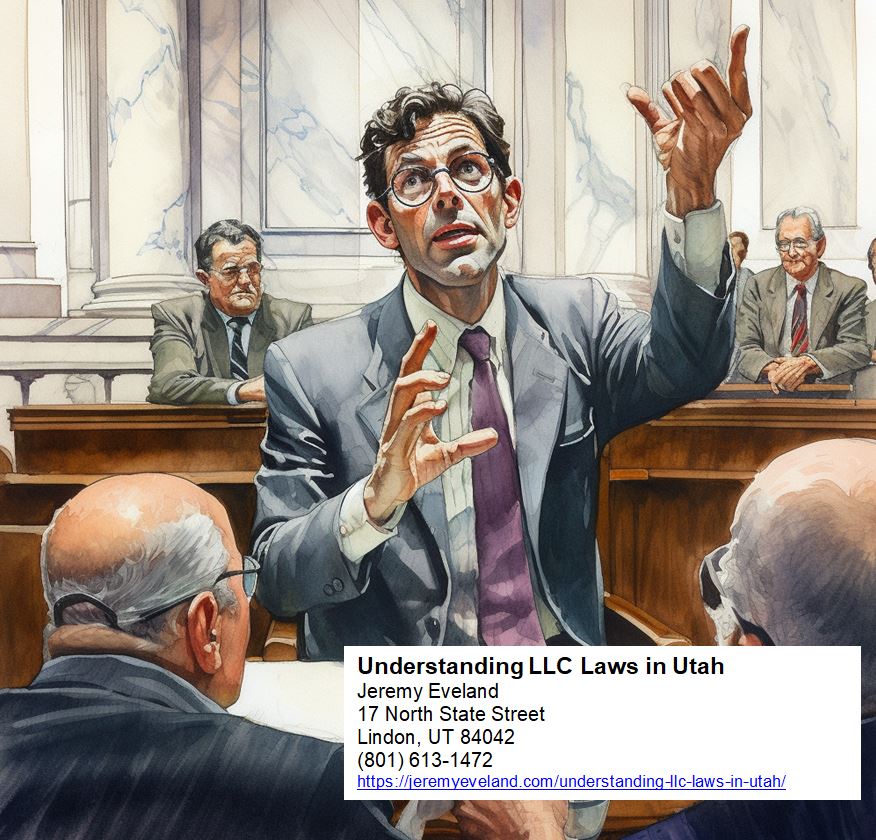Are you going through a difficult time in your marriage and considering a divorce? Well, you’re not alone. Divorce can be a complicated and emotionally challenging process, but what if we told you that there is an alternative? In this article, we will explore the concept of uncontested divorce, a smoother and more amicable way to end your marriage. With a focus on clear communication and compromise, an uncontested divorce can save you time, money, and unnecessary stress. So, if you’re looking for a peaceful resolution to your marital troubles, keep reading to discover the benefits of an uncontested divorce and take the first step towards a brighter future.

What is an uncontested divorce?
Definition of uncontested divorce
An uncontested divorce, also known as a no-fault divorce, is a legal process where both parties agree to end their marriage without any major disagreements or disputes. In this type of divorce, the spouses are able to reach a mutual agreement on key issues such as property division, child custody, child support, and spousal support, without the need for court intervention.
Key characteristics of uncontested divorces
Uncontested divorces are characterized by the absence of conflicts and the presence of cooperation and compromise between the spouses. Both parties are willing to work together towards a peaceful resolution, putting the best interests of themselves and any children involved first. In an uncontested divorce, the couple aims to dissolve their marriage amicably, minimizing the stress, time, and costs associated with the legal process.
Importance of mutual agreement
One of the essential elements of an uncontested divorce is mutual agreement. This means that both spouses are on the same page regarding the terms of the divorce. By reaching a mutual agreement, the couple can avoid lengthy court battles and maintain control over the outcome of their separation. It allows for open communication and fosters a collaborative approach, which can lead to a smoother transition from married life to being divorced.
Advantages of an uncontested divorce
Cost-effectiveness
One significant advantage of choosing an uncontested divorce is its cost-effectiveness. Since there are no lengthy court battles or adversarial proceedings involved, the legal fees associated with an uncontested divorce tend to be significantly lower compared to a contested divorce. By working together to reach an agreement, you can avoid unnecessary expenses and save money for your future.
Time-saving
Another benefit of opting for an uncontested divorce is the time it saves. Unlike contested divorces that can drag on for months or even years, uncontested divorces generally have a shorter timeline. By avoiding the need for court hearings and prolonged negotiations, an uncontested divorce allows you to move forward with your life more quickly.
Reduced emotional stress
Divorce is often emotionally challenging for both parties involved. However, an uncontested divorce can help minimize the emotional stress associated with the process. By choosing to work together and find common ground, you can maintain a more amicable relationship with your soon-to-be-ex-spouse, which may be especially important if you have children together. By minimizing conflict, you can focus on healing and transitioning to a new chapter in your life.
Privacy and confidentiality
Uncontested divorces offer a higher degree of privacy and confidentiality. Since the details of the divorce agreement are settled between the spouses, there is no need for public court hearings or disclosure of sensitive information. This can be particularly beneficial if you value your privacy or have concerns about certain aspects of your personal life becoming public knowledge.
Increased control and flexibility
By opting for an uncontested divorce, you and your spouse have more control over the outcome of your divorce settlement. You can work together to find creative and customized solutions that meet both of your needs, rather than leaving those decisions up to a judge. This increased control and flexibility can result in a more tailored divorce agreement that better suits your unique circumstances and preferences.
Requirements for an uncontested divorce
No-fault divorce
In order to pursue an uncontested divorce, most jurisdictions require that the divorce be based on no-fault grounds. This means that the divorce is not being sought due to any specific wrongdoing on the part of either spouse. Instead, the couple simply agrees that their marriage is irretrievably broken and cannot be salvaged.
Mutual agreement
As mentioned earlier, one of the key requirements for an uncontested divorce is mutual agreement between the spouses. This agreement should cover all major aspects of the divorce, such as child custody, child support, spousal support, and property division. By ensuring that both parties are in agreement, you can proceed with an uncontested divorce and avoid unnecessary conflicts.
Residency requirements
Every jurisdiction has specific residency requirements that must be met in order to file for divorce. These requirements typically include a minimum period of residency in the state or county where the divorce is being filed. It is important to familiarize yourself with the residency requirements of your jurisdiction before initiating the uncontested divorce process.
Absence of domestic violence
An uncontested divorce is generally not suitable for couples where domestic violence is present. In cases of abuse, it is crucial to prioritize the safety and well-being of the victimized spouse and any children involved. If there is a history of domestic violence in your relationship, it is important to seek legal advice and explore alternative divorce options that ensure the protection of all parties involved.
How to initiate an uncontested divorce
Completing the necessary forms
To initiate an uncontested divorce, you will need to complete the necessary divorce forms required by your jurisdiction. These forms typically include a petition for divorce, a marital settlement agreement, and financial disclosure documents. It is important to carefully review and accurately fill out these forms, as any errors or omissions could potentially delay the divorce process.
Filing the divorce petition
Once you have completed the required forms, you will need to file the divorce petition with the court. The filing process will vary depending on your jurisdiction, but generally, it involves submitting the necessary documents to the appropriate courthouse along with any required filing fees. After the petition is filed, you will receive a case number, which will be used to track the progress of your divorce.
Serving the divorce papers
After filing the divorce petition, it is important to serve the divorce papers to your spouse. This typically involves providing them with a copy of the filed documents, usually through a process server or a qualified individual authorized by the court. Proper service ensures that your spouse is aware of the divorce proceedings and has the opportunity to respond within the specified timeframe.
Response from the other party
Once your spouse has been served with the divorce papers, they will have a certain amount of time to respond. The response may involve their agreement to the terms outlined in the petition or a request for modifications. In an uncontested divorce, it is ideal for both parties to be in agreement and work together to finalize the divorce settlement. If your spouse raises any concerns or requests changes to the proposed settlement, you may need to engage in negotiations or mediation to reach a resolution.

Navigating the legal process of an uncontested divorce
Mediation or negotiation
In an uncontested divorce, mediation or negotiation is often used to resolve any outstanding issues. Mediation involves a neutral third party, known as a mediator, who facilitates communication between the spouses and helps them reach a mutually acceptable agreement. Negotiation, on the other hand, involves direct discussions between the spouses or their attorneys to resolve any conflicts and reach a settlement.
Division of assets and debts
One of the crucial aspects of an uncontested divorce is the division of marital assets and debts. This typically includes the equitable distribution of property such as real estate, bank accounts, investments, and personal belongings. It is important to compile a comprehensive list of assets and debts and work together to determine a fair division that reflects your individual circumstances and priorities.
Spousal support or alimony
Spousal support, also known as alimony, may be a consideration in an uncontested divorce. If one spouse is financially dependent on the other, the court may require the financially independent spouse to provide financial support for a specific period of time. In an uncontested divorce, you and your spouse have the opportunity to discuss and agree upon the terms of spousal support, whether it involves a specific amount or a lump sum payment.
Child custody and visitation
If you have children, determining custody and visitation arrangements will be a key component of your uncontested divorce. It is important to put the best interests of the children first and work together to create a parenting plan that promotes their well-being and maintains a healthy co-parenting relationship. This may involve decisions about physical custody, legal custody, visitation schedules, and communication methods.
Child support arrangements
In addition to custody and visitation, child support is also a critical consideration in uncontested divorces involving children. Child support is typically determined based on the income of both parents and the needs of the children. By working together, you can calculate child support payments and establish a plan that ensures the financial security and well-being of your children.
Drafting the settlement agreement
Once all the issues have been resolved and both parties are in agreement, it is important to draft a comprehensive settlement agreement. This document outlines all the terms and conditions of the divorce settlement, including property division, spousal support, child custody, child support, and any other relevant matters. The settlement agreement is a legally binding contract that serves as the official record of your uncontested divorce.
Understanding the role of a divorce attorney
Importance of legal representation
While uncontested divorces generally involve less conflict and fewer legal challenges, it is still important to have legal representation throughout the process. A divorce attorney can provide guidance, protect your rights, and ensure that all legal requirements are met. They can help you understand your options, navigate complex legal procedures, and provide valuable advice tailored to your specific circumstances.
Roles and responsibilities of a divorce attorney
A divorce attorney’s role in an uncontested divorce may vary depending on the complexity of the case and the level of agreement between the spouses. They can assist with the preparation and review of legal documents, represent your interests during negotiations or mediation, and provide advice on the fairest resolutions for property division, child custody, and other matters. A divorce attorney can also ensure that all necessary filings and court procedures are completed accurately and in a timely manner.
Assistance with paperwork and legal procedures
One of the major advantages of having a divorce attorney is their expertise in handling the paperwork and legal procedures associated with an uncontested divorce. They can help you complete the necessary forms, ensure all required information is included, and file the documents correctly. By having an attorney handle the paperwork, you can have peace of mind knowing that the legal aspects of your divorce are being handled professionally.
Negotiation and advocacy
In the event that disputes arise during the uncontested divorce process, a divorce attorney can provide skilled negotiation and advocacy on your behalf. They can help facilitate discussions, maintain a positive and productive atmosphere, and work towards finding mutually satisfactory solutions. If negotiations break down, your attorney can also advocate for your rights and interests in court, if necessary.
Protecting your rights and interests
A divorce attorney’s primary responsibility is to protect your rights and interests throughout the uncontested divorce process. They can ensure that all negotiations and agreements are fair and equitable, leaving no room for exploitation or injustice. Your attorney will work diligently to safeguard your legal rights and help you achieve the best possible outcome in your uncontested divorce.
Common concerns in uncontested divorces
Fear of losing assets
One common concern in uncontested divorces is the fear of losing assets. It is natural to be concerned about how property will be divided, especially if you have accumulated significant assets during your marriage. However, by working together and reaching a mutual agreement, you can ensure a fair and equitable distribution that takes into account both parties’ contributions and needs.
Confusion about legal requirements
Navigating the legal requirements of a divorce can be confusing, especially if you have never been through the process before. It is important to seek guidance from a qualified divorce attorney who can explain the legal requirements in your jurisdiction and guide you through the necessary steps. By having a clear understanding of the process, you can approach your uncontested divorce with confidence and peace of mind.
Worries about child custody arrangements
Child custody is often a major concern in any divorce, including uncontested divorces. It is natural to worry about how the divorce will impact your relationship with your children and their well-being. By prioritizing their best interests and working together with your spouse, you can create a parenting plan that ensures continued involvement in your children’s lives and promotes their emotional and physical well-being.
Concerns about financial stability
Financial stability is another common concern in uncontested divorces. The fear of financial insecurity after divorce can be overwhelming. However, by engaging in open and honest discussions with your spouse, you can work out a fair division of assets and debts, as well as establish spousal support or child support arrangements that provide for your financial needs and the needs of your children.
Fear of the divorce process
The divorce process itself can be intimidating and overwhelming for many individuals. It is normal to have fears about the unknown and concerns about how your life will change after divorce. Seeking support from a compassionate divorce attorney can help alleviate some of these fears. They can guide you through the process, provide reassurance and clarity, and help you develop a positive mindset as you navigate this new chapter in your life.
Addressing financial matters in an uncontested divorce
Identifying and valuing marital assets
One of the primary steps in addressing financial matters in an uncontested divorce is identifying and valuing marital assets. This involves creating a comprehensive inventory of all assets acquired during the marriage, such as real estate, bank accounts, investments, vehicles, and personal belongings. By working together, you can ensure that all assets are accounted for and accurately valued.
Debt allocation
In addition to dividing assets, it is important to address the allocation of marital debts in an uncontested divorce. This includes mortgages, loans, credit card debt, and any other debts incurred during the marriage. By reaching a mutual agreement on how to distribute and handle these debts, you can avoid any potential future disputes and ensure a fair financial settlement.
Spousal support considerations
Spousal support, also known as alimony, may come into play in an uncontested divorce if one spouse is financially dependent on the other. It is important to consider the financial needs and earning capacities of both parties when determining the amount and duration of spousal support. By working together and taking into account each spouse’s financial circumstances, you can establish a fair and reasonable arrangement that provides necessary support.
Tax implications
Financial matters in an uncontested divorce also involve considering the tax implications of the divorce settlement. It is important to be aware of the potential tax consequences of any financial decisions made during the divorce process. Consulting with a divorce attorney or tax professional can help you navigate these complexities and make informed choices that minimize your tax liability.
Creating a fair financial settlement
Ultimately, the goal of addressing financial matters in an uncontested divorce is to create a fair financial settlement that ensures the financial stability and well-being of both parties. By working together in an open and transparent manner, you can reach an agreement that reflects your individual financial circumstances and allows for a smooth transition into post-divorce life.

Custody and child support in uncontested divorces
Establishing child custody arrangements
In uncontested divorces involving children, establishing child custody arrangements is a critical step. It is important to prioritize the best interests of the children and create a parenting plan that promotes their overall well-being and stability. This includes decisions about physical custody (where the child will live), legal custody (decision-making authority), and visitation schedules.
Determining child support obligations
Child support is a financial responsibility that is often addressed in uncontested divorces. The amount of child support paid by one parent to the other is typically determined by the income of both parents, the number of children involved, and state guidelines. By working together and considering the needs of the children, you can reach a fair agreement on child support that ensures their financial security.
Modifying custody and support agreements
In some cases, circumstances may change after the divorce is finalized, necessitating modifications to custody and support agreements. Uncontested divorces allow for more flexibility and the ability to modify these agreements more easily than contested divorces. If there are significant changes in the lives of the parents or children, such as relocation or changes in financial circumstances, it may be necessary to seek a modification to the custody or support arrangements.
Finalizing an uncontested divorce
Reviewing and signing the settlement agreement
The final step in an uncontested divorce is reviewing and signing the settlement agreement. It is crucial to carefully review the agreement, ensuring that all the terms and conditions accurately reflect your agreements on property division, spousal support, child custody, child support, and any other relevant matters. Once you are satisfied with the terms, both parties will sign the agreement, acknowledging their acceptance and commitment to the terms outlined.
Court approval and entry of divorce decree
After the settlement agreement has been signed, it must be submitted to the court for approval. The court will review the agreement to ensure it meets the legal requirements and that it is fair and reasonable. If the court approves the settlement agreement, it will enter a final divorce decree, officially dissolving the marriage and making the terms of the agreement legally binding.
Post-divorce responsibilities
After the uncontested divorce has been finalized, there are certain responsibilities that need to be addressed. This may include changing your name if desired, updating your legal documents, such as your will or power of attorney, and notifying relevant parties about the change in your marital status. It is important to take the necessary steps to ensure a smooth transition and to protect your rights and interests post-divorce.
Moving forward after divorce
While divorce can be a challenging experience, it also marks the beginning of a new chapter in your life. It is essential to prioritize self-care, seek emotional support if needed, and focus on rebuilding and moving forward. Take the time to set new goals, explore new interests, and prioritize your own well-being. Remember that an uncontested divorce can provide a more amicable and less adversarial foundation for moving forward and starting a new chapter in your life.
Remember, if you need further guidance or have specific questions about your uncontested divorce, it is always advisable to consult with a qualified divorce attorney. They can provide personalized advice and support throughout the process, ensuring that your rights and interests are protected as you navigate the legal complexities of ending your marriage in a peaceful and cooperative manner.



















